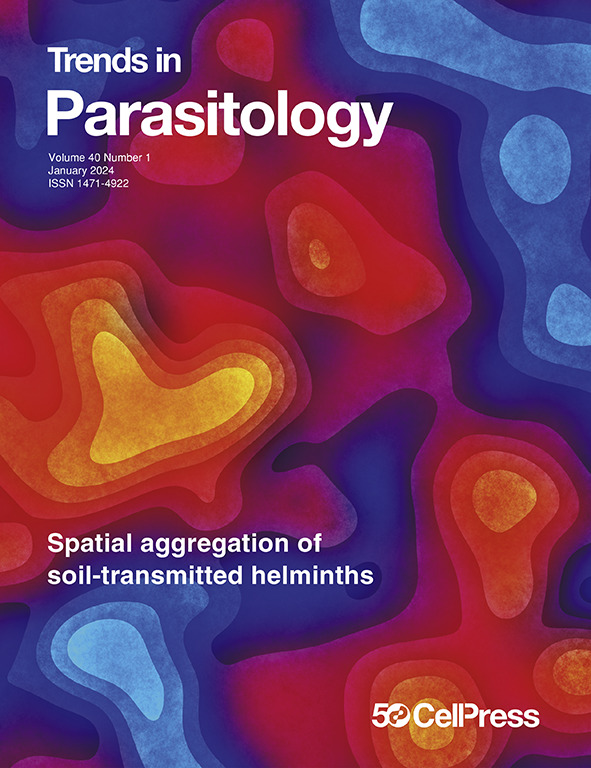Complementary therapeutic use of exercise in malaria's neurocognitive sequelae.
IF 6.6
1区 医学
Q1 PARASITOLOGY
引用次数: 0
Abstract
Malaria can compromise neurocognitive and behavioral integrity. Immunomodulation has been proposed as a mechanism by which exercise benefits brain function, including preventing neurocognitive decline in neurodegenerative diseases. We propose that immunomodulation through moderate-intensity aerobic exercise may be a potential approach to mitigate malaria-related neurocognitive and behavioral alterations.
运动对疟疾神经认知后遗症的辅助治疗。
疟疾会损害神经认知和行为的完整性。免疫调节被认为是运动有益于大脑功能的一种机制,包括预防神经退行性疾病的神经认知能力下降。我们提出,通过中等强度有氧运动进行免疫调节可能是减轻疟疾相关神经认知和行为改变的潜在方法。
本文章由计算机程序翻译,如有差异,请以英文原文为准。
求助全文
约1分钟内获得全文
求助全文
来源期刊

Trends in parasitology
医学-寄生虫学
CiteScore
14.00
自引率
3.10%
发文量
148
审稿时长
6-12 weeks
期刊介绍:
Since its inception as Parasitology Today in 1985, Trends in Parasitology has evolved into a highly esteemed review journal of global significance, reflecting the importance of medical and veterinary parasites worldwide. The journal serves as a hub for communication among researchers across all disciplines of parasitology, encompassing endoparasites, ectoparasites, transmission vectors, and susceptible hosts.
Each monthly issue of Trends in Parasitology offers authoritative, cutting-edge, and yet accessible review articles, providing a balanced and comprehensive overview, along with opinion pieces offering personal and novel perspectives. Additionally, the journal publishes a variety of short articles designed to inform and stimulate thoughts in a lively and widely-accessible manner. These include Science & Society (discussing the interface between parasitology and the general public), Spotlight (highlighting recently published research articles), Forum (presenting single-point hypotheses), Parasite/Vector of the Month (featuring a modular display of the selected species), Letter (providing responses to recent articles in Trends in Parasitology), and Trendstalk (conducting interviews). Please note that the journal exclusively publishes literature reviews based on published data, with systematic reviews, meta-analysis, and unpublished primary research falling outside our scope.
 求助内容:
求助内容: 应助结果提醒方式:
应助结果提醒方式:


